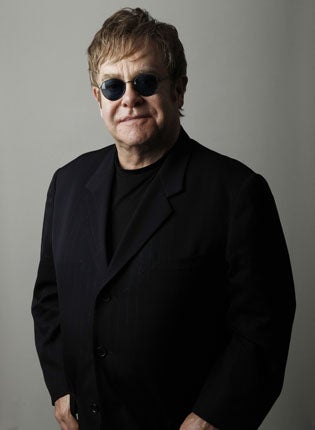UK pop stars back fight to overturn anti-gay laws

Top music stars and politicians are throwing their support behind a new international gay-rights group which is trying to battle homophobic discrimination in the Commonwealth.
On Tuesday pop legends Sir Elton John and George Michael will attend the official launch in the House of Commons of Kaleidoscope, which aims to get 19th-century British anti-gay laws revoked in the Commonwealth and beyond, by using business and political pressure.
It comes after campaigners grew increasingly concerned at how homosexual persecution is being actively encouraged by some Commonwealth states – particularly in Africa. In January, a Ugandan gay rights campaigner was beaten to death after being "outed" by a newspaper which published photographs of people it said were gay with a headline: "Hang them."
Lesbians in South Africa have been murdered and faced "corrective rapes", while activists in Kenya and Ghana have also been targeted. Currently, 38 of the 54 members of the Commonwealth criminalise homosexuality.
Kaleidoscope says many countries have national gay rights organisations but there is no overall international body to coordinate action. London has become the base for the organisation, partly due to the Commonwealth link, but also because it is a business hub.
The group wants large multi-nationals to pressure regimes to change laws, particularly in more developed Commonwealth countries like Singapore. Nearly all the Commonwealth's anti-gay laws are a colonial legacy. They were introduced in the nineteenth century and not repealed when colonies won independence from Britain.
Bisi Alimi, who became the first Nigerian to come out on national TV, is one of Kaleidoscope's founding members. Yesterday he said: "As a result of coming out I was attacked, tied up and beaten in my own home in Lagos. For the first time in my life I not only saw a gun but I felt it right against my head. I was forced to leave my country."
Kaeleidoscope is supported by Prime Minister David Cameron and Deputy Prime Minister Nick Clegg, as well as by Labour leader Ed Miliband.
Join our commenting forum
Join thought-provoking conversations, follow other Independent readers and see their replies
Comments
Bookmark popover
Removed from bookmarks